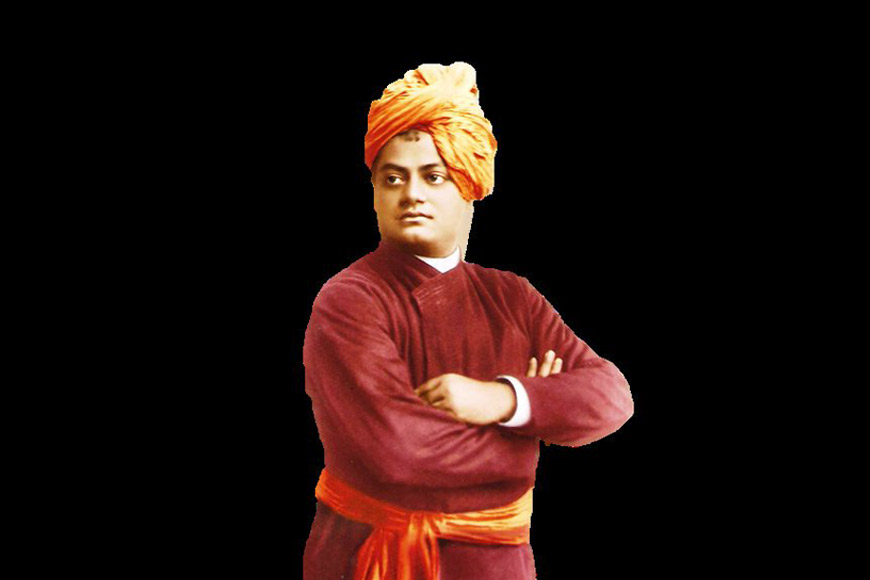Swami Vivekananda could relegate Gods of his religion for greater cause of India

As a part of Swami Vivekananda’s birth anniversary GB carries a 3-part-series on Swamiji as the humanist, spiritual leader and a socialist, who could vociferously relegate to the background, Gods of his own religion, for the greater cause of his country. In an era when India is going through religious intolerance, cases of lynching in name of sacrilege, Swami Vivekananda’s true teachings somehow need to come to the forefront
Swami Vivekananda was not an armchair nationalist. He was indeed that man who toured throughout India and saw the sufferings and indignities of Indians at first hand. His heart bled for them and he passed many sleepless nights shedding tears for his fellowmen. On his coming back to India in 1897, he had said: “For the next 50 years, this alone shall be our keynote: This our Great Mother India. Let all other vain Gods disappear for the time from our mind.”
Perhaps he was the only monk in history who could so vociferously relegate to the background, Gods of his own religion, for the greater cause of his country. He gave the clarion call to the youths: “Arise, Awake and Stop not until the goal is reached.” He tried to make the people of his country aware of their appalling conditions in the colonial regime and at the same time tried to instill in them a sense of dignity and self-confidence and a spirit of courage and boldness to fight back for a glorious future.
It is true that the primary identity of Swami Vivekananda was his religious identity. He was the chief disciple of Sri Ramakrishna but his religion was not a weak and barren religion, nor was it parochial or communal. It was firm, bold, positive and comprehensive in its approach.
Swami Vivekananda viewed India as a living entity, as a Mother. His life of renunciation and dedication to the cause of the motherland together with his fiery utterances and unambiguous emphasis on self-dignity had created a tremendous impact on the Indian nationalists since the late 19th century. The tributes of great Indian nationalists and the statements of different political activists including revolutionaries of colonial India and numerous government reports like the Tegart Report of 1914, Tindall Report of 1917, Ker Report of 1917 and Rowlatt Report of 1918, all admit this fact. Swami Vivekananda was a staunch votary of freedom and viewed freedom from a holistic standpoint --- physical, social, political, economic, mental and spiritual. As a true Vedantist, he could not accept any kind of bondage in a period when the larger Indian society was plunged into torpor and degradation, into lethargy and stagnation, Vivekananda gave the clarion call for strength, patriotism and man-making.
Paying greater importance to physical culture, he proclaimed that playing football was now more necessary than reading Gita. He preached the cult of Vedanta for the reawakening of his beloved country. He condemned passivity as a sign of weakness or tamas and asked for vigorous activity or cultivation of rajas. It is true that Swamiji never preached the cult of purification by blood and fire in the manner Sri Aurobindo did, yet the pragmatic effect of his message is unquestionable. His messages produced a tremendous impact on the mind of the nationalists of all shades and particularly on revolutionaries. It is no wonder that many centres of physical culture did spring up in Bengal from the late 19th century. Even moderate like S.N. Banerjee assembled at the Kali Temple at Kalighat before taking the Swadeshi oath. Not only Swadeshi associations like Anushilon Samity, Brati Samity, Suhrid Samity, Sadhana Samity, Swadeshbandhab Samity paid attention to the cultivation of physique, but also religious or cultural association like the Ramakrishna Mission and Bharat Sevashram Sangha gave importance to physical training of individuals.
Swami Vivekananda viewed India as a living entity, as a Mother. His life of renunciation and dedication to the cause of the motherland together with his fiery utterances and unambiguous emphasis on self-dignity had created a tremendous impact on the Indian nationalists since the late 19th century.
It is true that the primary identity of Swami Vivekananda was his religious identity. He was the chief disciple of Sri Ramakrishna but his religion was not a weak and barren religion, nor was it parochial or communal. It was firm, bold, positive and comprehensive in its approach. It was a dynamic religion. His concept of nationalism was not narrowly Hindu. It was Indian in its sweep involving an awakening the downtrodden masses. He was a nationalist par excellence, but at the same time he was an internationalist who believed who believed in global amity and cooperation. In him nationalism, spiritualism and humanism were all combined together, which cannot be compartmentalized.
Source: Vivekananda as the Turning Point
Article by Jayasree Mukherjee










